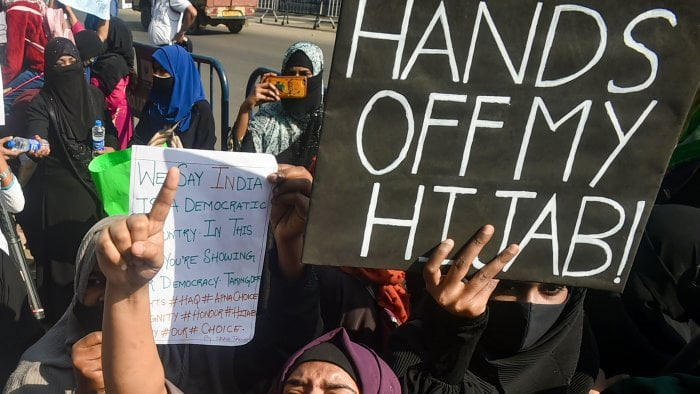According to the Karnataka government, the hijab is not an essential religious practice of Islam. Therefore, banning students from wearing hijabs does not violate Article 25 of the Indian Constitution, guaranteeing religious freedom.
As reported by news agency PTI, the Advocate General of Karnataka, Prabhuling Navadgi, told the full bench of the High Court consisting of Justice Ritu Raj Awasthi, Justice J M Khazi, and Justice Krishna M Dixit that wearing a hijab is not an essential part of Islam.
Indian citizens have the right to freedom of conscience, free profession, practice, and propagation of religion under Article 25 of the Constitution. According to Navadgi, the government order does not violate Article 19(1)(a) of the Constitution.
Article 19(1)(a) guarantees the right to freedom of speech and expression. According to the Advocate General, the February 5 government order was in accordance with the law and that there was nothing to object to.
Last week, the High Court ruled that all students would not be permitted to wear saffron shawls, scarves, the hijab, or any religious flag within the classroom, pending consideration of all petitions related to the hijab row.
Following the hearing on Friday, senior advocate Prof Ravi Varma Kumar, representing Muslim girls who are challenging the ban on wearing hijab in classes, said the live streaming was causing a lot of unrest in the society as the observations were taken out of context.
An advocate claimed that live streaming had become “counterproductive” and that children suffered. However, Chief Justice Ritu Raj Awasthi said, “Let the people also understand what the respondents’ position is.”
In the Udupi district in Karnataka, the Hijab protests began on February 4 when female students claimed that they had been denied access to classes for wearing the hijab.
Earlier this month, Muslim women allegedly denied entry to college to some students wearing the hijab during protests.




 WhatsApp Channel
WhatsApp Channel
 Instagram
Instagram
 Facebook
Facebook
 X (Twitter)
X (Twitter)